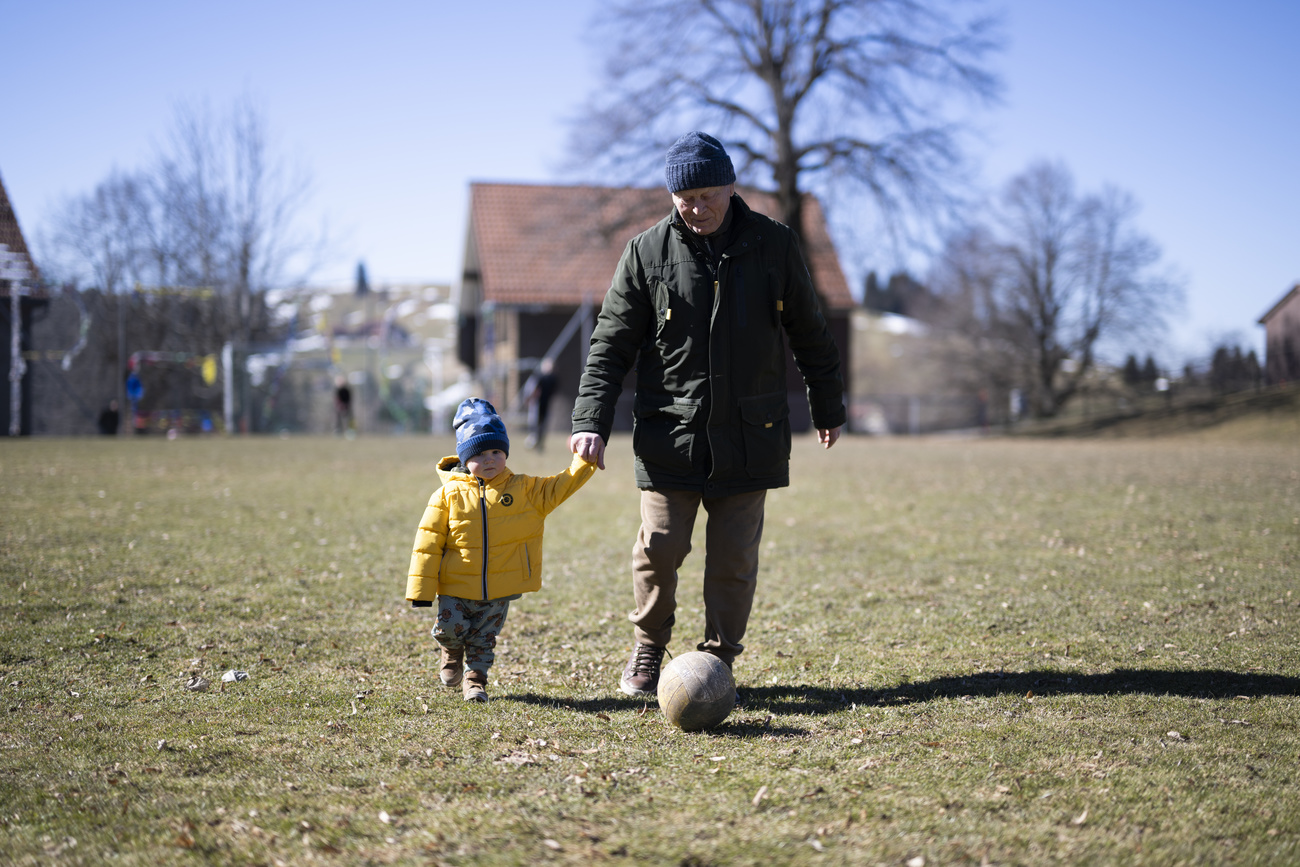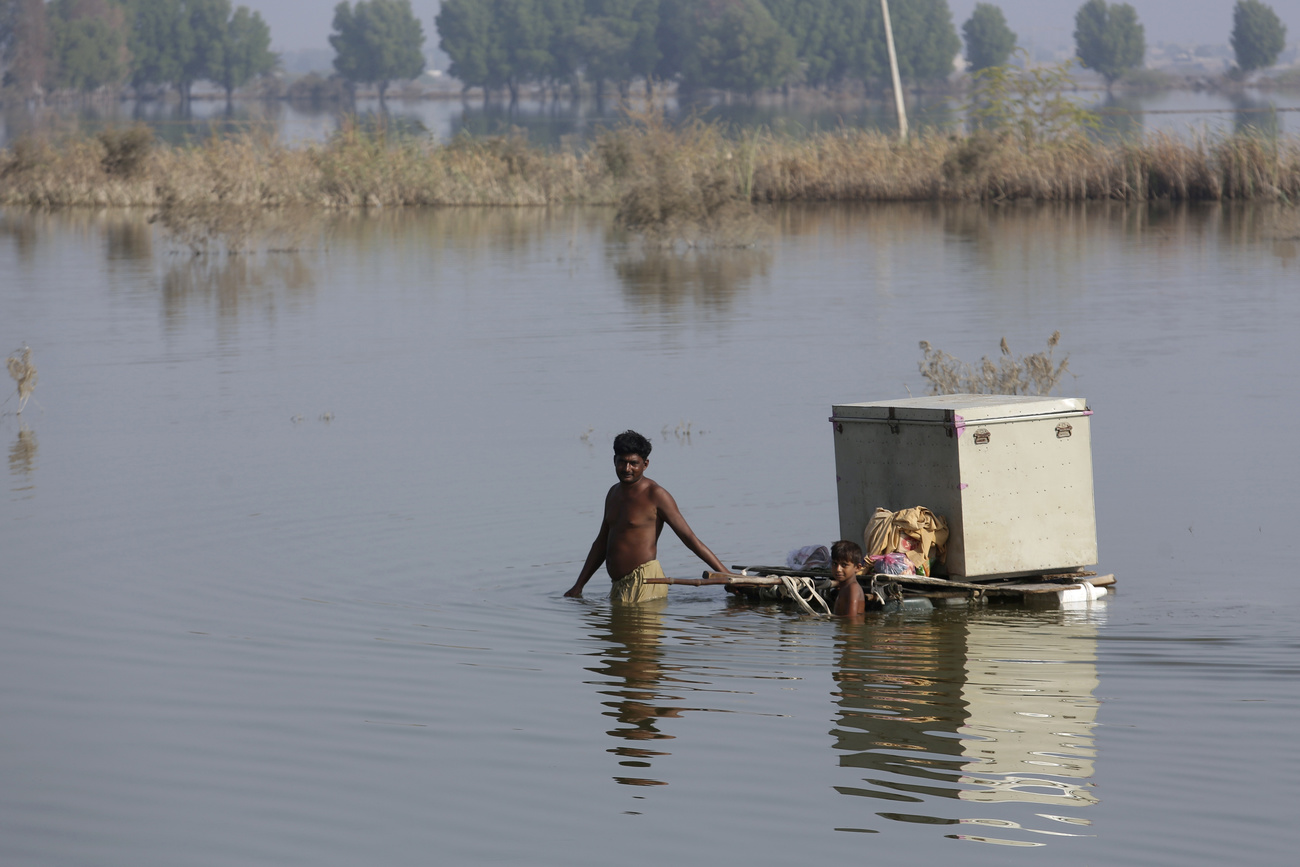
Caritas wants to improve protection status S for refugees

One year after the introduction of protection status S, which enables the rapid admission of refugees, more than 75,000 Ukrainians have found safety in Switzerland. Charity Caritas Switzerland considers the overall balance to be positive, but it sees room for improvement.
For example, people with protection status S should receive a regular B residence permit after two years – this was the only way to ensure good professional and social integration, the anti-poverty organisation said in a statementExternal link on Wednesday.
The government developed protection status S in the mid-1990s in response to the Balkan wars. The mechanism is intended to speed up the admission of a group of refugees, who are thus freed from long asylum procedures, including individual examinations of why they fled their country.
Refugees with status S receive a one-year temporary residence permit, renewable for as long as the war continues. They are entitled to accommodation, social benefits and medical care. They may also join the job market immediately and bring their families to Switzerland. Children can attend school.

More
Switzerland triggers unprecedented special status for Ukrainian refugees
Caritas welcomed the freedom of movement and easier access to the labour market for people with status S. “The fact that 15% of Ukrainian refugees of working age found a job immediately after arriving in Switzerland is a win-win situation,” it said. However, language integration remains a challenge. There is therefore a need for linguistic and job-search support, it said.
It also said that “everyone in need of protection must be treated equally and granted S protection status”, regardless of the conflict situation from which they have fled.
Need of support
Caritas Switzerland has already committed around CHF20 million ($21.5 million) to 60 projects in Switzerland and abroad to help Ukrainians. In Switzerland, it has placed refugees in around 2,000 host families. In cooperation with Swiss Solidarity, the humanitarian arm of the Swiss Broadcasting Corporation (SBC), Caritas has so far allocated around CHF2 million for emergency and transitional aid in Switzerland.
In Ukraine, Swiss Solidarity has distributed hot meals and food parcels to 3.7 million people and provided shelter for 430,000 victims. Some 10,600 tonnes of basic necessities have been delivered.
Peter Lack, director of Caritas Switzerland, called for continued public solidarity as “unfortunately an end to the war is not in sight any time soon” and further refugee movements were to be expected. “The Ukrainians are in urgent need of our support, both on the ground and in Switzerland,” he said.

More
Swiss charity sees ‘extraordinary wave of solidarity’ in 2022

In compliance with the JTI standards
More: SWI swissinfo.ch certified by the Journalism Trust Initiative




























You can find an overview of ongoing debates with our journalists here . Please join us!
If you want to start a conversation about a topic raised in this article or want to report factual errors, email us at english@swissinfo.ch.